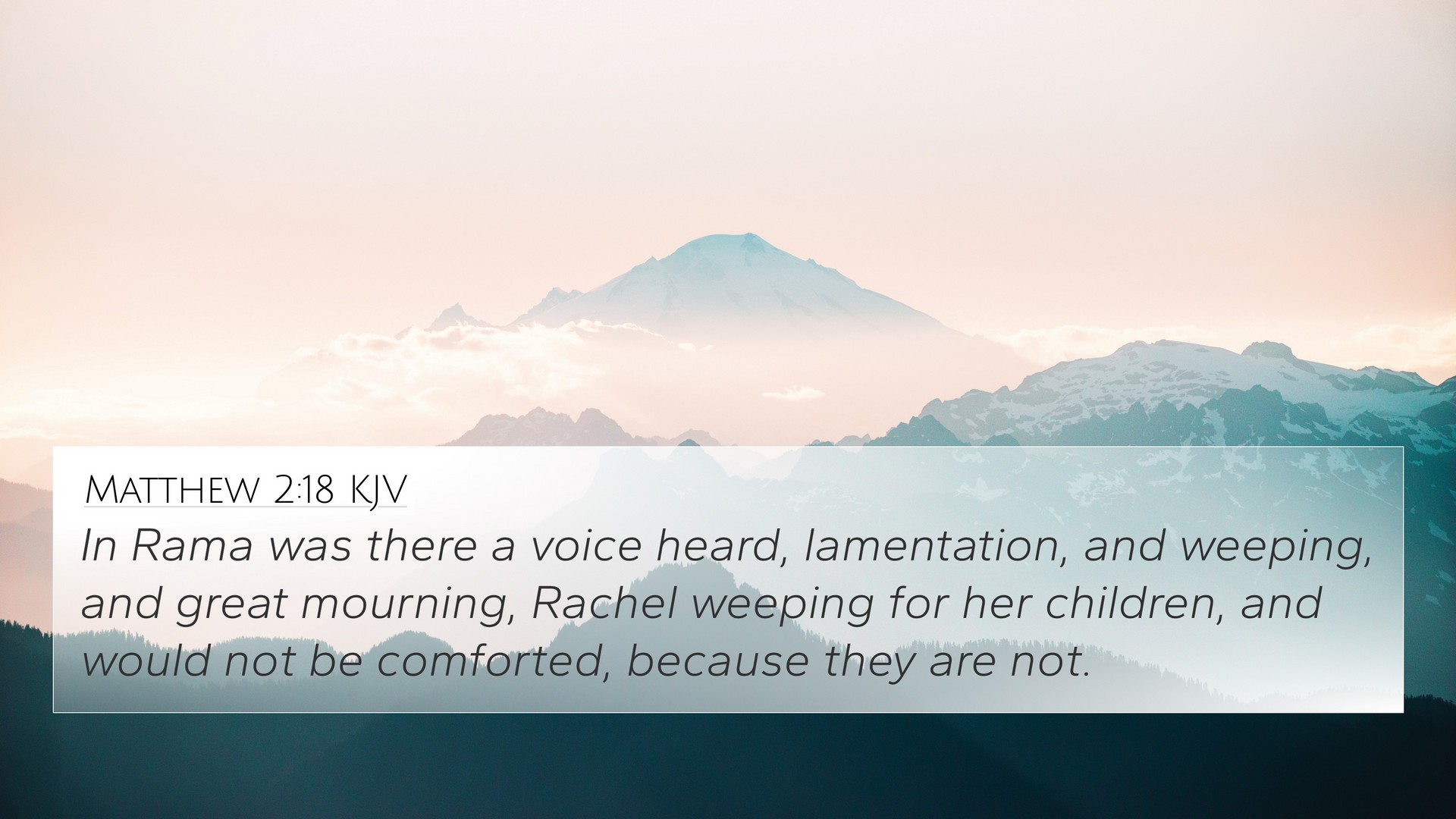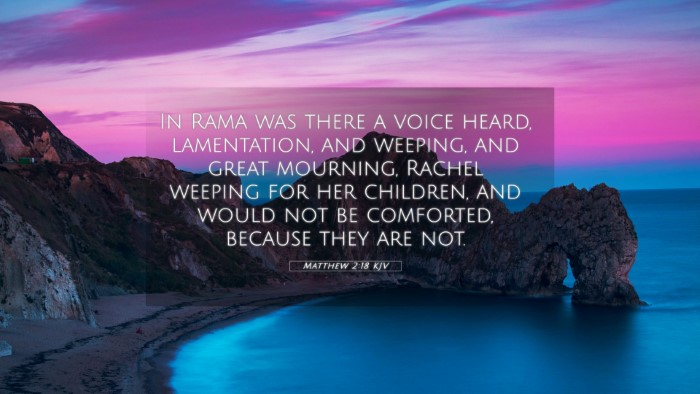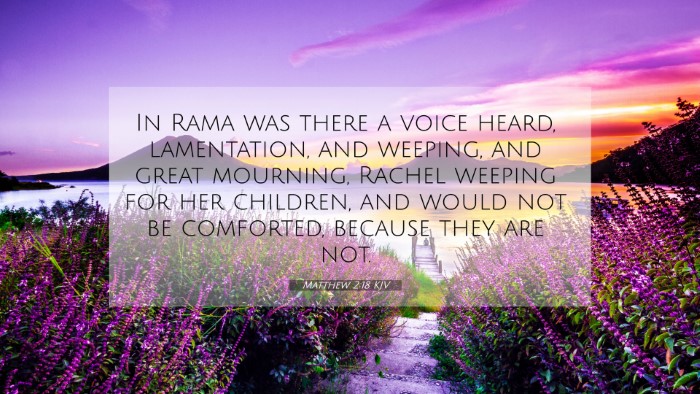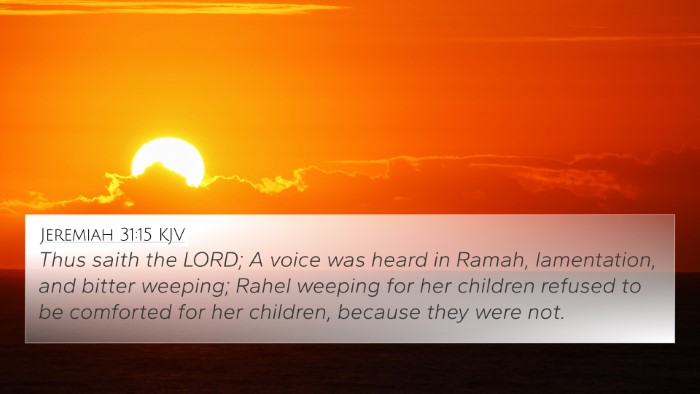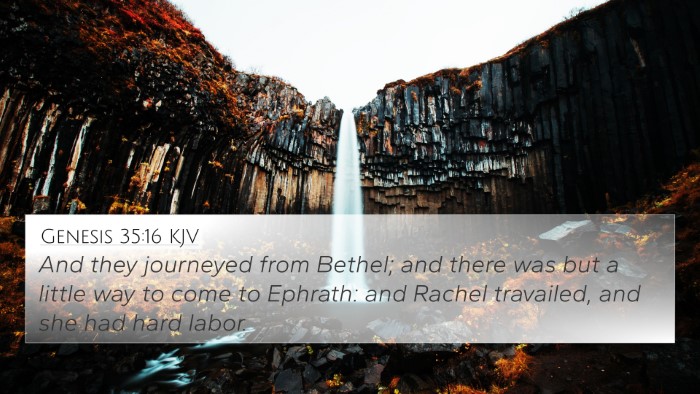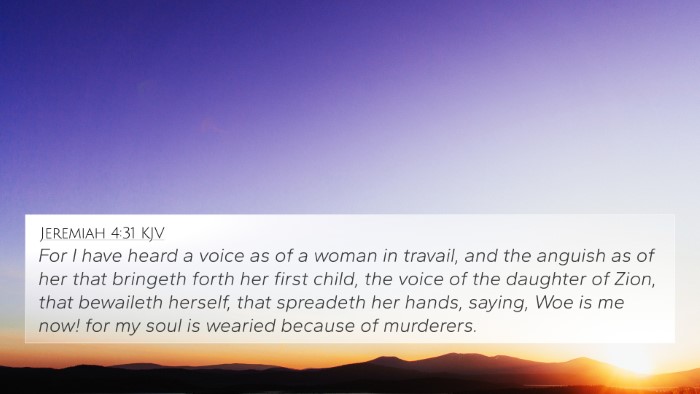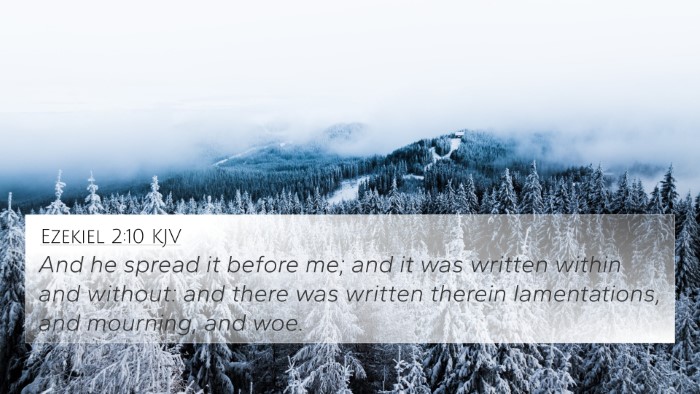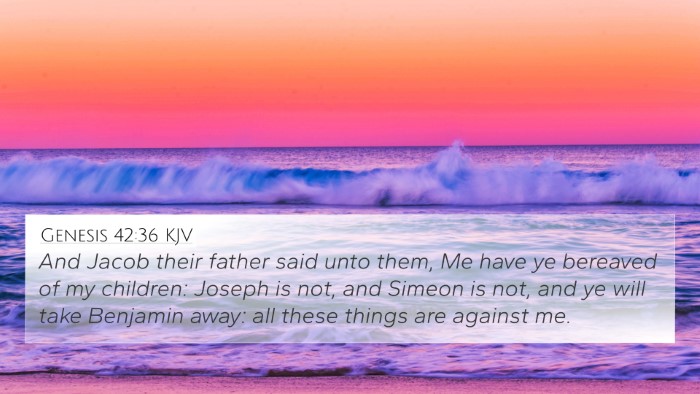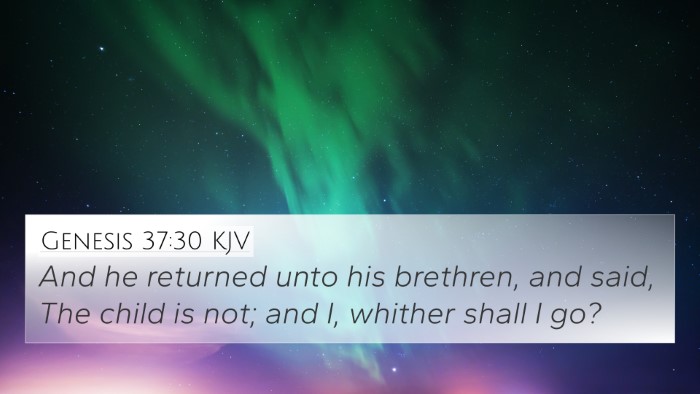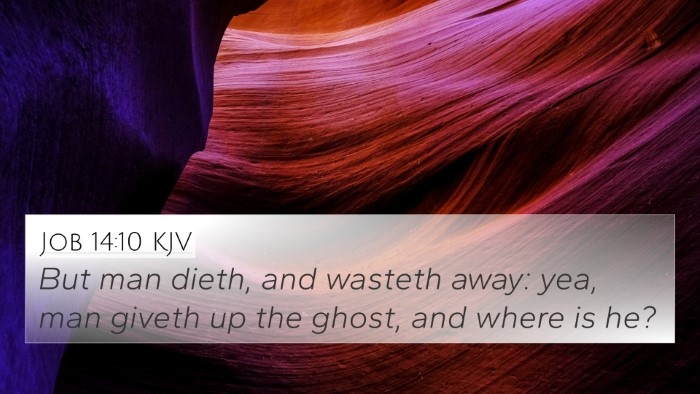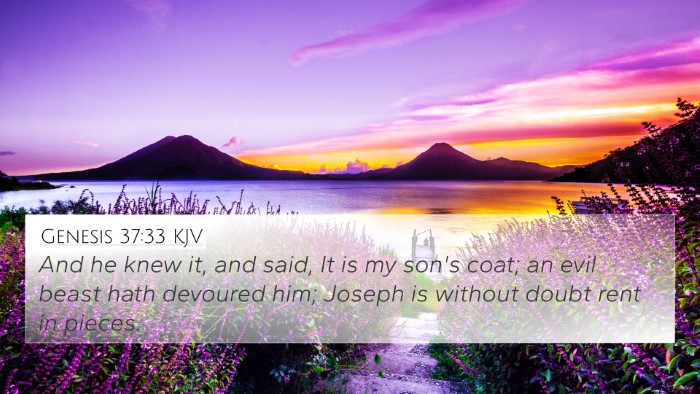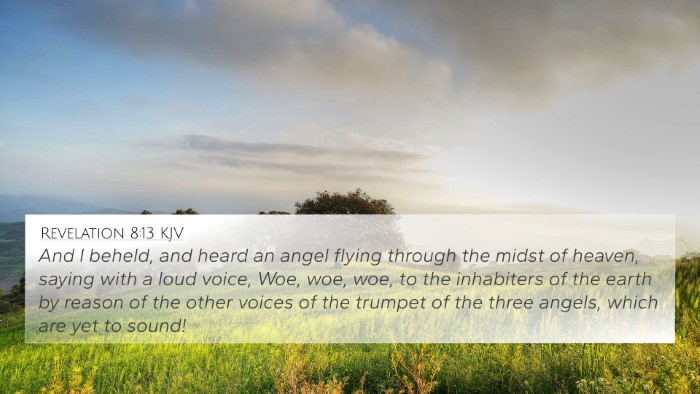Understanding Matthew 2:18
Verse Text: "In Ramah was there a voice heard, lamentation, and weeping, and great mourning, Rachel weeping for her children, and would not be comforted, because they are not." (Matthew 2:18)
Summary of Meaning
This verse reflects the fulfillment of prophecy regarding the mourning of Rachel, symbolizing the deep sorrow that envelops the families of the innocents slain under King Herod's decree. It draws upon Jeremiah 31:15, highlighting the pain and loss accompanying the tragic events surrounding Jesus's birth.
Insights from Public Domain Commentaries
Matthew Henry's Commentary
Matthew Henry emphasizes the fulfillment of prophetic scripture through the lamentation of Rachel, pinpointing the significance of this sorrow as representative of Israel's grief over their lost children. He reflects on how this mourning aligns with the overarching narrative of God's judgment and the sorrow associated with the advent of Christ.
Albert Barnes' Notes
Albert Barnes provides an in-depth analysis of the context of Rachel as a matriarch, who represents the tribes of Israel mourning for their children. He draws connections to the historical background of Israel’s captivity and loss, suggesting that the expression of grief here connects both past and present struggles faced by the people of Israel.
Adam Clarke's Commentary
Adam Clarke interprets the verse in light of its prophetic roots, indicating that Rachel’s lamentation signifies the sensitivity of mothers toward their children. He suggests that this emotional depth conveys the tragic consequences of Herod's actions and calls attention to the wider implications of sin and suffering in the world.
Cross-References
This verse relates to several key scriptures that enhance our understanding:
- Jeremiah 31:15: "Thus says the Lord: 'A voice was heard in Ramah, lamentation and bitter weeping, Rachel weeping for her children...'"
- Exodus 1:22: "Pharaoh commanded all his people, saying, 'Every son who is born you shall cast into the river...'"
- Matthew 1:1: "The book of the genealogy of Jesus Christ, the son of David, the son of Abraham."
- Luke 2:7: "And she brought forth her firstborn son, and wrapped him in swaddling cloths, and laid him in a manger..."
- Revelation 12:4: "His tail swept down a third of the stars of heaven and cast them to the earth..."
- Hosea 11:1: "When Israel was a child, I loved him, and out of Egypt I called my son."
- Psalm 137:1: "By the rivers of Babylon, there we sat down and wept, when we remembered Zion."
Thematic Connections
The mourning of Rachel reflects a larger theme observed throughout scripture – the suffering of innocents and the deep sorrow inherent in the human experience.
Tool for Cross-Referencing
Utilizing tools like a Bible concordance or a Bible cross-reference guide can help enrich the study by identifying connections and themes across the scriptures.
Research and Study Methods
For a comparative Bible verse analysis, one can use various cross-referencing Bible study methods to explore similar themes and dynamics across both the Old and New Testaments.
Identifying Connections
When studying the Bible, understanding how to find cross-references could be beneficial in discerning connections between significant events and lamentations such as those expressed in Matthew 2:18.
Conclusion
In conclusion, Matthew 2:18 serves as a poignant reminder of the grief that accompanies loss and the fulfillment of prophecy concerning the Messiah's origins. Through scriptural cross-referencing and thematic connections, we can deeply appreciate and understand the layers of emotion and the promise of redemption that runs throughout the Biblical narrative.
